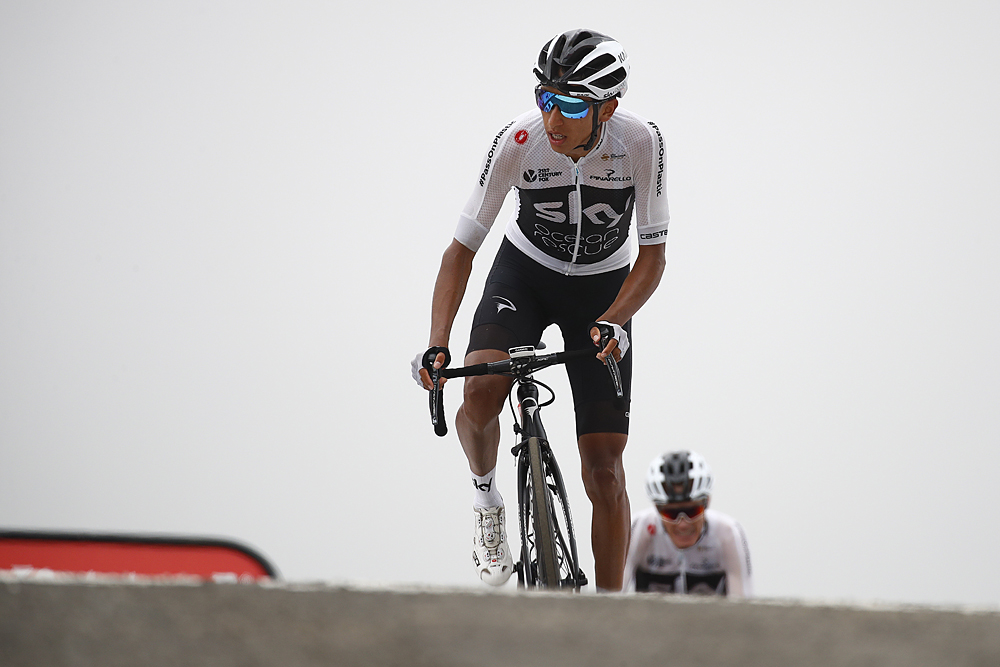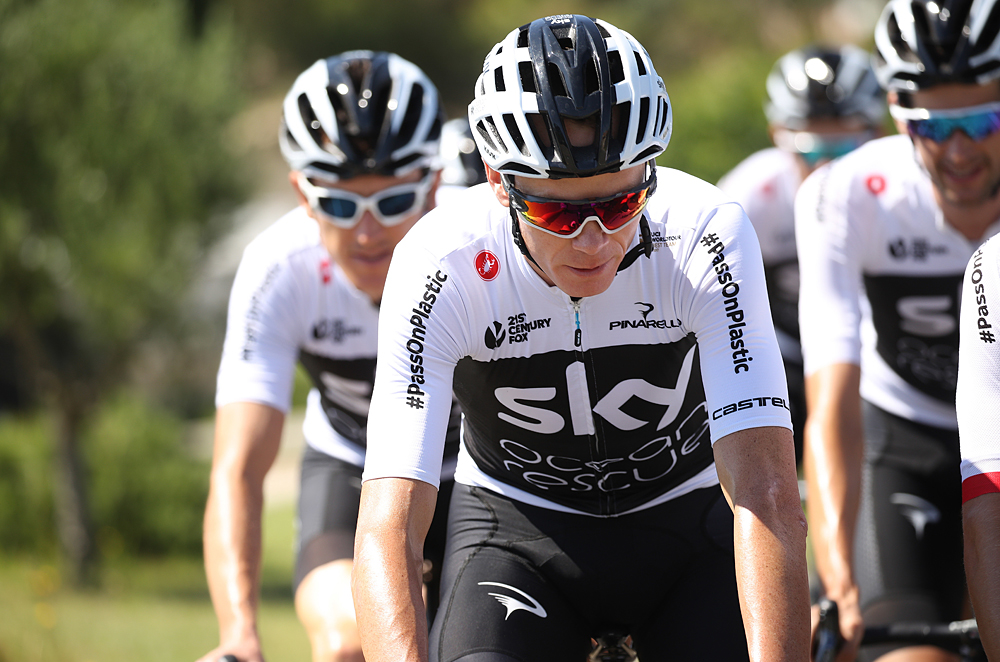Tygart says WADA lost credibility in Chris Froome's salbutamol case
'Lack of transparency' a major issue for USADA head




Travis Tygart, the head of the US Anti-Doping Agency (USADA), has told the BBC Sport that the handling of Chris Froome's recently closed salbutamol case is a "blow" to the World Anti-Doping Agency's (WADA) credibility.
UCI closes salbutamol case against Chris Froome
WADA deny giving Chris Froome a legal loophole by avoiding pharmacokinetic study
Chris Froome dodged a bullet, says former WADA head Pound
Chris Froome and WADA need to be more transparent, says former ASADA head
WADA defends salbutamol rules in wake of Froome acquittal
Geraint Thomas soars to Tour de France's highest point - Analysis
"The question is whether justice was truly served or did a star get an undeserved break," Tygart said in an interview with BBC Sport on Wednesday, expressing his concern that there was a lack of transparency and credibility over the decision to drop Froome's case.
"Unfortunately, it's another blow to the perceived credibility of the global anti-doping movement," he said.
Froome returned an anti-doping sample, an adverse analytical finding, that contained double the permitted level of salbutamol, 2000ng/ml, at the 2017 Vuelta a España, a race he went on to win. The findings for salbutamol were later reduced to 19 per cent above the allowable limit after being adjusted for dehydration.
Froome and Team Sky were notified of the findings on September 20, though it only became public knowledge when news of the test leaked to the The Guardian and Le Monde in December. He risked a possible ban and the loss of his Vuelta title and all subsequent results, but he continued to race while the case was being adjudicated and won the Giro d'Italia in May.
After a nine-month investigation, the UCI closed the case just days ahead of the Tour de France, saying that that the results did not constitute an adverse analytical finding (AAF).
The UCI's decision was based on WADA's position on the case after reviewing expert evidence brought forth by Froome and his legal team.
Get The Leadout Newsletter
The latest race content, interviews, features, reviews and expert buying guides, direct to your inbox!
Froome, however, did not undergo a controlled pharmacokinetic study (CPKS) allowed under WADA rules to prove that the level of salbutamol was a normal consequence of his physiology because WADA said "it would not have been practicable as it would not have been possible to adequately recreate the unique circumstances that preceded the 7 September doping control."
Instead, WADA accepted Froome's 1,500 pages of expert evidence and explanations, and said that it recognized that "in rare cases, athletes may exceed the decision limit concentration without exceeding the maximum inhaled dose".
WADA supported the UCI decision to then clear Froome saying that it "believes this to be the right and fair outcome for what was a very complex case."
However, very little of the extensive expert evidence used to make both the UCI's and WADA's decision to close Froome's case has been made public.
Tygart, who led the investigation that exposed former cyclist Lance Armstrong's doping operation and saw him banned for life, said that not being able to review the evidence makes it impossible to know how the decision was reached and that is what lessens the UCI's and WADA's credibility in their decision. He said that it is also unfair to Froome because the cycling community think he has benefitted from having a high profile, even if his reputation may have already been "unfairly tarnished".
He said Froome's case is "another shard that has damaged the credibility of WADA".
He also said that the lack of transparency forces the cycling community to question the case, particularly when in previous salbutamol cases - such as Alessandro Petacchi and Diego Ulissi - the UCI and WADA rejected arguments that the athlete's use of the drug was within the allowed limits.
"You can never un-ring that bell, and it's why more answers have to be provided so that people have confidence that he's not just a star who got away with it - that's a natural conclusion," Tygart said.
"Athletes should not be accused or it be inferred that they're not clean until proven through the established process, and that didn't happen here and he deserves the benefit of that presumption of innocence."
Tygart also expressed concerns when he told BBC Sport that in nearly 75,000 anti-doping tests conducted by USADA since the salbutamol rule was updated in 2011, the organisation did not find "a single athlete" in any sport that exceeded the maximum permitted amount.
A WADA spokesperson responded to Tygart's claims of there being a lack of transparency, telling BBC Sport, "WADA has publicly set out the reasoning for its position on the case of Mr Froome."
"Mr Tygart's assessment appears uninformed, is unconstructive, and, quite frankly is surprising given that USADA has itself previously taken the decision to close a salbutamol case where the athlete exceeded the threshold without a controlled pharmacokinetic study being conducted.
"In leading the fight against doping in sport, WADA is sometimes forced to make difficult decisions related to complex cases that people, who are not in possession of the facts, do not understand or agree with.
"This is one of those occasions. WADA is convinced that, in view of the complex and unique circumstances of Mr. Froome's case, the UCI reached a correct and fair outcome."
